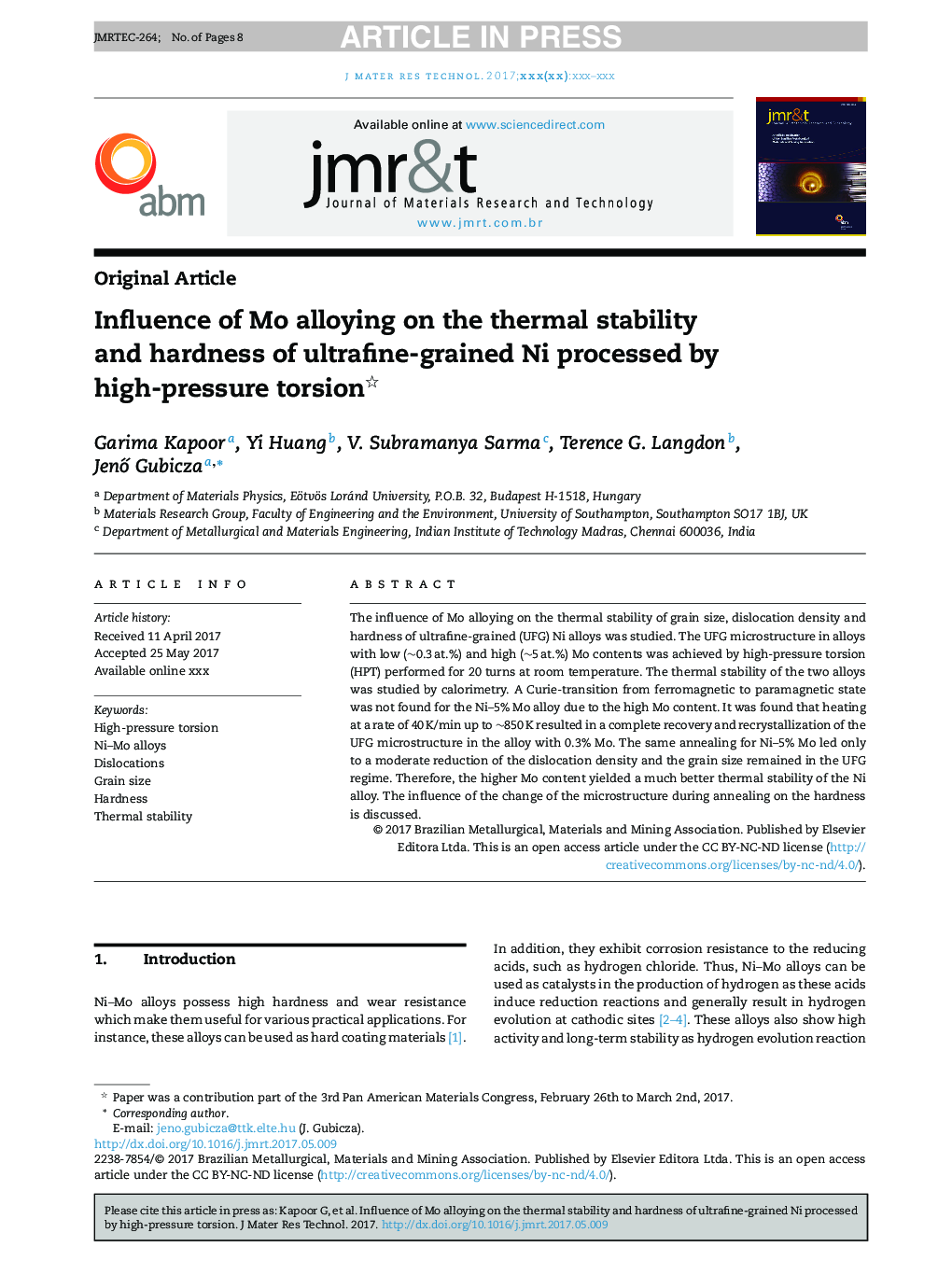| Article ID | Journal | Published Year | Pages | File Type |
|---|---|---|---|---|
| 7899358 | Journal of Materials Research and Technology | 2017 | 8 Pages |
Abstract
The influence of Mo alloying on the thermal stability of grain size, dislocation density and hardness of ultrafine-grained (UFG) Ni alloys was studied. The UFG microstructure in alloys with low (â¼0.3Â at.%) and high (â¼5Â at.%) Mo contents was achieved by high-pressure torsion (HPT) performed for 20 turns at room temperature. The thermal stability of the two alloys was studied by calorimetry. A Curie-transition from ferromagnetic to paramagnetic state was not found for the Ni-5% Mo alloy due to the high Mo content. It was found that heating at a rate of 40Â K/min up to â¼850Â K resulted in a complete recovery and recrystallization of the UFG microstructure in the alloy with 0.3% Mo. The same annealing for Ni-5% Mo led only to a moderate reduction of the dislocation density and the grain size remained in the UFG regime. Therefore, the higher Mo content yielded a much better thermal stability of the Ni alloy. The influence of the change of the microstructure during annealing on the hardness is discussed.
Related Topics
Physical Sciences and Engineering
Materials Science
Ceramics and Composites
Authors
Garima Kapoor, Yi Huang, V. Subramanya Sarma, Terence G. Langdon, JenÅ Gubicza,
